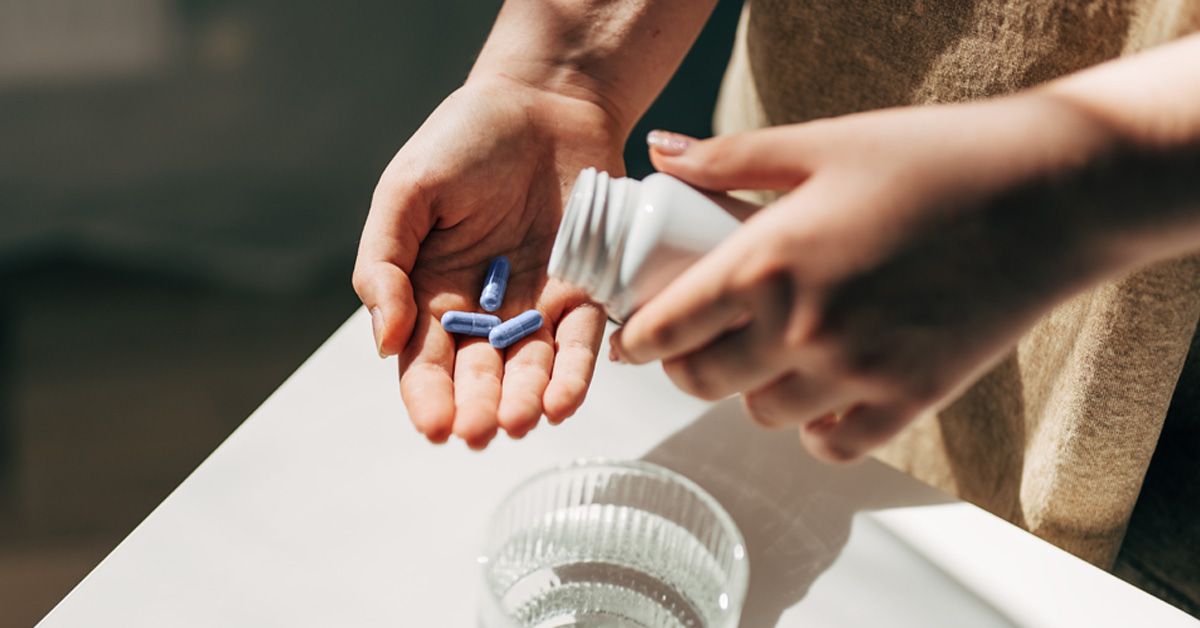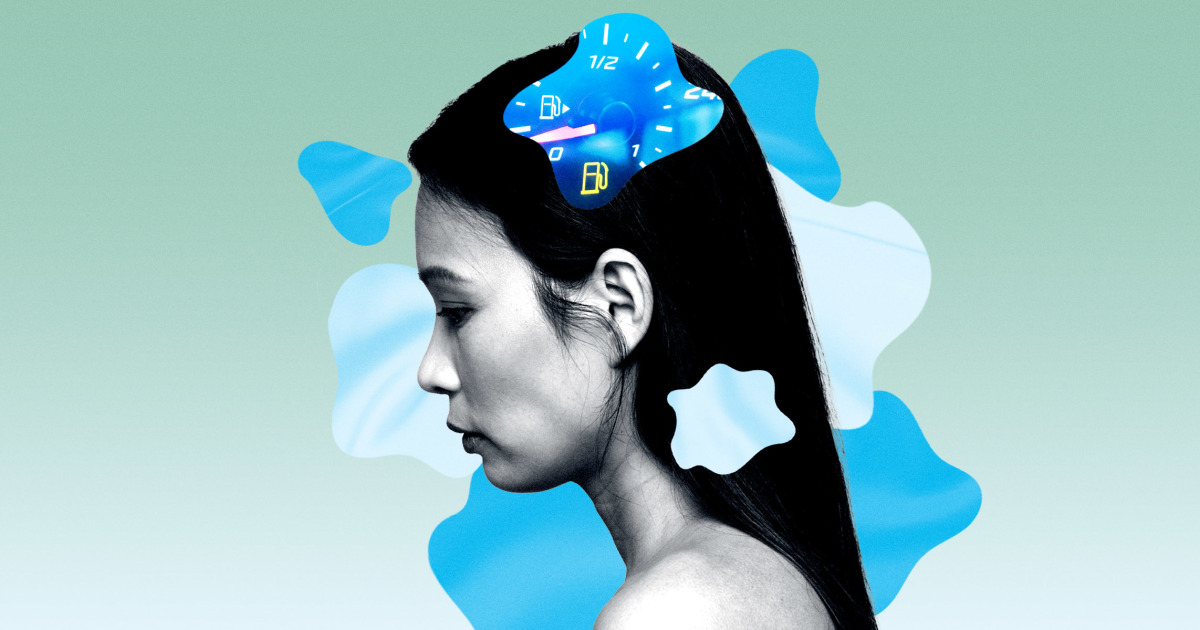Suni Lee has accomplished a lot by 21 years old. One of the most decorated gymnasts, Lee has six Olympic medals, two of which are gold, she’s has three world championship medals, five U.S. championship medals and she’s a college athlete at the University of Auburn.
With all of those achievements came setbacks Lee had to overcome as well, namely her health.
In recent years, Lee has been open about her diagnosis with two incurable kidney diseases, eczema, hits to her mental health and the toll they’ve taken on her personal life and her career. Ahead, learn everything the gymnast has shared about her health and where it stands now.
RELATED: Suni Lee’s dad shares her story of qualifying for the 2020 Olympics
Suni Lee has an incurable kidney disease
Lee shocked her fans in 2023 when she announced she was retiring from college gymnastics early to handle a health matter.
“I have been dealing with a non-gymnastics health related issue involving my kidneys. For my safety, the medical team did not clear me to train and compete over the last few weeks,” the then-20-year-old wrote on Twitter at the time. “
I am blessed and thankful to be working with the best specialized medical team to treat and manage my diagnosis. My focus at this time is my health and recovery.”
She was diagnosed in 2023
In February 2023, the gymnast started experiencing abnormal swelling all over her body — in her ankles, face, hands and legs.
Lee told Self that her doctors ruled out an allergic reaction when the swelling remained after two weeks.
“I just kept getting more swollen … and I think I gained, like, 40 pounds,” she said.
After several rounds of tests, doctors discovered that Lee had a rare, incurable kidney condition. They would later discover that she had not one, but two forms of kidney disease, per Sports Illustrated.
Shortly after her symptoms developed, Lee left school to focus on her health.
She modified her training to accommodate her condition
While chatting with E! News in March 2024, Lee revealed her kidney disease forced her to press pause for a few months. As a result, she “got a lot weaker.”
When she was approved to start training again, Lee had to modify her workouts and started doing physical therapy.
“My coaches have never had to deal with someone who has had two kidney diseases,” Lee said at the Team USA Media Summit in April 2024. “And obviously, I’m like, ‘OK, I don’t know any other gymnasts that have two kidney diseases that have had to go through this.’ So it’s all a learning process. And we’re taking it day by day.”
Things started to improve in January 2024
Lee told Sports Illustrated that she got a call from her doctor in January 2024 that changed everything.
“That’s when she started saying, ‘I think they’re getting a handle on it,’ ” her trainer Jess Graba told the publication. “‘I’m feeling a lot better. The doctor just called me yesterday and told me that they think they can knock down some of the medications. So I’m feeling like maybe I want to try.’”
Her condition went into remission
While speaking at the Team USA Media Summit in April 2024, Lee said her condition is in remission and she’s almost back to her normal training schedule.
“Right now (my routines are) still a little modified,” she said. “I think I’m at a good spot, though. I don’t want to peak too early. So it feels normal. I feel like I’m going at a good pace. I’m getting all my routines back and working on consistency.”
The Olympic medalist said she feels “so much better” these days and has even upped her gymnastics game.
“I’m like, ‘I’m way better already than I was at the last Olympics.’ And I didn’t even think that I could get better than that. So that gives me a little more comfort and knowing that anything that I put my mind to, I can accomplish,” she said.
“My doctor was telling me he didn’t think I’d be able to do gymnastics ever again,” Lee added. “So to even be here is an accomplishment in itself. And I’m super proud of myself.”
In a July 2024 interview with Elle, Lee said the uncertainty of her gymnastics career during her illness and treatment made for “the hardest couple of months. … I didn’t know if I was going to be able to do it.”
But now that she’s healthy enough to compete again, she’s worked her way back to her former strength. “I am in remission, so I’m getting a lot stronger,” she said. “I’ve been able to train a lot more, and I am just so happy, because I really didn’t think I would be here. To be here is quite incredible.”
Lee said her support system and her doctors were a big part of her recovery, particularly Dr. Marcia Faustin, the co-head team physician for USA Gymnastics.
“She was constantly checking up on me, making sure I was OK,” Lee told The Athletic in July 2024. “She reminded me of my worth because she knew I’d be so disappointed in myself if I gave up this dream. And look at where we are right now. We made it. We did it together.”
Faustin, who also worked with Simone Biles when she withdrew form the Tokyo Olympics due to the twisties, championed Lee. “She’s a warrior,” Faustin said. “What she’s come out of, and what she’s doing just tells us we should never box humans in. We should allow them to flourish and hold that hope for them.”
She relapsed ahead of the 2024 Paris Olympic trials
“Nobody knows this, but the week before the Olympic trials, I had to get an infusion because I went into a relapse,” Lee told Glamour in Oct. 2024.
Lee’s body was swelling again, she felt fatigued and had a difficult time getting through training. But an infusion made a “world of difference,” she told the magazine and she came in second at trials allowing her to compete in the Olympic games.
“I was able to do everything that I was supposed to do,” she added.
She competed at the 2024 Paris Olympic Games
Lee returning for her second Olympic Games was far from guaranteed.
Speaking to TODAY’s Hoda Kotb in an exclusive interview which aired in early July 2024, Lee said “it feels absolutely insane” to have made the team.
“There were so many times where I thought about quitting and just giving up because I was so sick, and it was just so hard to stay motivated, watching everybody get better, and I’m just like I can’t even get back into the gym and constantly doubting myself,” the 21-year-old recalled.
“But once I had those people around me who lifted me up and supported me and just made sure that I was good, I knew that this is something that I wanted.”
On Instagram, Lee wrote about what this moment meant to her: “This comeback was so much more than my return to elite gymnastics. It was me proving to myself that I can overcome hard things, and to hopefully inspire others to never let life’s setbacks stop you from going after your dreams.”
What is incurable kidney disease?
Lee hasn’t shared publicly which diagnosis she received because it may change as her medical team learns more about her specific illness, she told Self. She has described many of her symptoms, including swelling, cramping, headaches, hot flashes and cold spells.
While chronic kidney disease is common, Lee’s particular condition is not, Self reported.
Per the Cleveland Clinic, chronic kidney disease (CKD), which is not curable, occurs when the kidneys stop working as they’re supposed to due to damage. Since kidneys work as filters and remove toxins from the body, waste “builds up in your blood” when you have CKD.
“Kidney disease is called ‘chronic’ because kidney function slowly decreases over time. CKD can lead to kidney failure, which is also called end-stage kidney disease. Not everyone with CKD will develop kidney failure, but the disease will often worsen without treatment,” Cleveland Clinic explains.
Symptoms include swelling, urination problems, high blood pressure, trouble sleeping and concentrating, reduce appetite, fatigue, shortness of breath, cramps, nausea and more.
The incurable condition has five stages and can be managed with dialysis or transplant in its late stages. Lee has been taking medication as part of her treatment plan, which has changed over time.
She has eczema
At a young age, Lee started noticing that her skin was red, itchy and “always uncomfortable,” she told PopSugar. When over the counter products failed to address her symptoms, the young gymnast sought out an official diagnosis.
Lee soon discovered that she had eczema, a condition that’s characterized by dry, itchy and bumpy skin.
“Eczema is a type of dermatitis. Dermatitis is a group of conditions that cause skin inflammation,” according to the Cleveland Clinic.
There are multiple forms of eczema and symptoms typically manifest in childhood then “last into adulthood,” though it can “affect anyone at any age.”
At one time, Lee’s eczema was “really bad” on her legs, arms and behind her neck and was “swollen and inflamed,” she told PopSugar.
“It made me not want to be seen anywhere because I knew people were looking at it because it was so inflamed. It has definitely taken a hit to my security levels when I’m competing, because it feels like people are looking at me,” she explained.
When she landed a spot on the 2021 U.S. Olympics team, Lee was worried that her eczema would be on display for everyone to see.
“It was something that I felt ashamed of, being in a leotard and competing for Team USA,” she recalled. “Our skin is very exposed, cameras are always on us, people are always taking pictures, and it’s hard when you’re kind of ashamed to be looking at your own body or your skin because you can see that it’s rough or flaky.”
With the help of her doctors and dermatologists, Lee has a handle on her eczema and believes the condition isn’t “something to be ashamed or embarrassed about.”
Everyone has different eczema triggers, including foods, fabrics, weather, soaps, makeup and more. For Lee, she said she’s particularly affected by stress.
“I get the worst stress eczema flare-ups,” she said. “At the 2021 Olympics, I was having a flare-up on my neck that I thankfully got handled right before the competition. But it happens a lot when I’m stressed and I can’t sleep. I get really bad flare-ups. So then I’m constantly itching and uncomfortable.”
She’s been outspoken about mental health
Similar to her friend and teammate Biles, Lee has been open about the mental health challenges that come along with being a gymnast in the public eye.
“I just don’t like the feeling of when people don’t like you,” she revealed to Elle 2024 in July. While she knows breaks from social media would help tremendously, her work doesn’t always allow for that. “It’s hard, because it’s also my job,” she said.
The changes in her appearance when she was ill also impacted her mindset. “I just looked like a completely different person, so it took a toll on my mental health, and (led to) me just not even wanting to look in the mirror.” But she’s done the work of shifting her mindset. “I feel like I’m getting back to regular Suni. And my confidence is back to normal.”
The support of the gymnastics community has helped too. “I talk to and listen to a bunch of other athletes, and I’m constantly trying to hear and understand how some people do the things they do,” she told PopSugar. “And it’s been so helpful because I was scared to talk about it for a long time, but when Simone and other athletes started talking about it, it made me feel more comfortable.”
She’s experienced imposter syndrome and anxiety attacks
“I feel like after the Olympics, there’s just been so much doubt in like, ‘Oh, she shouldn’t have won Olympics, blah, blah, blah,’ and it really hits my soul,” she told ESPN in 2022.
Over time, Lee began to believe that she “didn’t deserve to win.”
“It was very hard for me to motivate myself the first couple of weeks (when I began college) because it was like I didn’t want to do gymnastics, I hated it,” she continued.
Lee said she was “a wreck” at her first few college gymnastics meets and experienced “anxiety attacks.”
Now, she’s learning to cope. Right before the all-round competition at the 2024 Olympics, Lee turned to a soothing mechanism caught on camera: words of affirmation.
Lee told herself, “You got this,” and, “Let’s work,” before her performance, which earned her a bronze medal.
“I didn’t think that I was going to be able to podium,” Lee told TODAY’s Hoda Kotb and Savannah Guthrie the day after the all-around. “Coming in my floor routine, I literally told myself we’re just going to end it off the right way, and I’m just going to do everything that I can to just finish it off, because being here is an accomplishment itself.”
She goes to therapy
“It’s always good to have the outside help and just to be able to talk to somebody that doesn’t really know what’s going on,” she told Women’s Health.
She’s learned about the importance of “asking for help when I need it,” she told Elle. “My mental health is the No. 1 priority.”
She enjoys journaling
When the pressure is on before a gymnastics competition, Lee likes to process her feelings by journaling.
“It has been something that is both therapeutic and so incredibly helpful in my preparation for meets,” she told Women’s Health.
A self-described “very private person,” Lee is the first to admit that she doesn’t “share how I totally feel all the time.” While talking with PopSugar, she described why she prefers writing down her feelings.
“I write down my ‘whys,’ my goals, my keywords, and I visualize a lot during my routines because it’s important to remember them when you’re out there and nervous and trying to block everything out,” she said.
Peacock is streaming the Paris Olympics around the clock. Learn more about accounts here. TODAY earns a commission on purchases. Peacock is owned by our parent company NBCUniversal.
Read the full article here


















